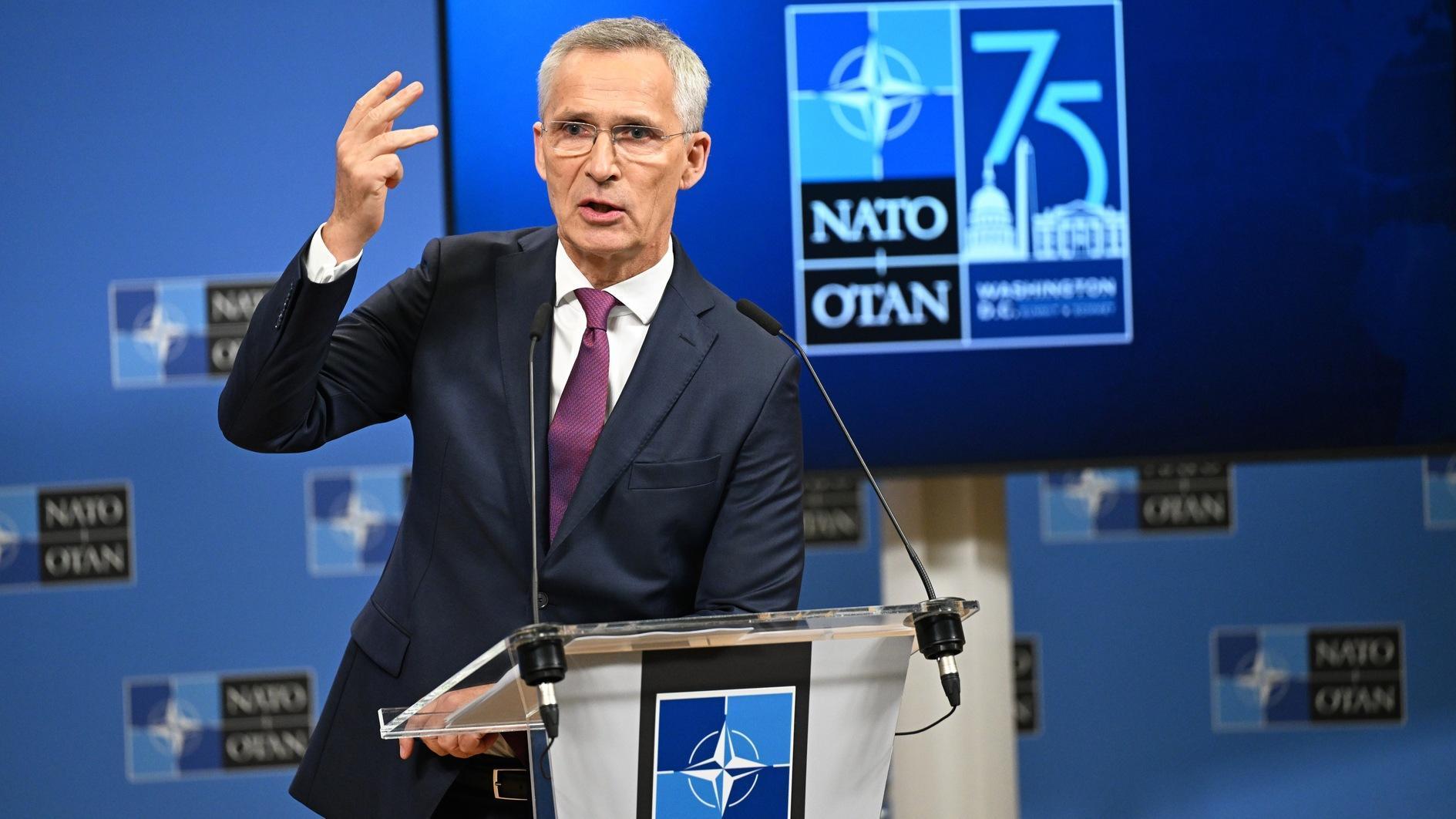
NATO's 75th anniversary summit was meant to showcase the triumph of a larger, stronger alliance. Instead, leaders are coming together in Washington in the shadow of setbacks in Ukraine and electoral headwinds on both sides of the Atlantic.
U.S. President Joe Biden, fighting for his political life after a disastrous debate against NATO skeptic Donald Trump, will turn his attention away from campaigning to welcome leaders of the 32-nation transatlantic alliance for three days from Monday.
Biden has also invited the leaders of Australia, Japan, New Zealand and South Korea, a sign of NATO's growing role in Asia in the face of a rising China.
But the star of the summit is set to be Ukrainian President Volodymyr Zelensky, who is looking for firm signs of support although NATO will not be extending his country an invitation to join.
Founded in 1949 to provide collective defense against the Soviet Union, NATO returned in some ways to its original mission when allies rallied to Ukraine's defense after it was invaded by Russia in 2022.
Ukrainians heartened most of the West by repelling Russia in its push for a quick victory. But Moscow's troops have been grinding on, making advances in the east.
A European official acknowledged the mood ahead of the NATO summit has become "gloomy" with Ukraine slipping on a fragile frontline.
"This summit will be very different from the initial plans because it is happening at a critical juncture for European security," the official said on condition of anonymity.
"Russia is today in a situation which is quite comfortable. They think they can simply wait it out," he said.
Max Bergmann, director of the Europe, Russia and Eurasia program at the Center for Strategic and International Studies, said the summit comes at "the best of times, and the worst of times."
"The best of times, in the sense that the alliance knows what it's about: Deterring Russia. Alliance members are spending more," he said.
"But it's also sort of the worst of times, obviously because of the war in Ukraine, challenges of ramping up European defense spending, concerns about the reliability of the United States."
The NATO summit is also expected to mark a diplomatic debut for a new leader: British Prime Minister Keir Starmer, after his Labour Party's landslide election victory.
NATO's outgoing secretary-general, Jens Stoltenberg, has led efforts to put the alliance itself, not the United States, in the lead in coordinating military assistance for Ukraine.
Stoltenberg also wants allies to commit to provide at least 40 billion euros ($43 billion) per year in military aid to Ukraine, ensuring reliable and consistent support as Kiev prepares for a long war against Russia.
Diplomats have dubbed such measures as "Trump-proofing" the alliance, although few believe that NATO or support for Ukraine could endure in the same way without the United States, which under Biden has approved $175 billion for Kiev in military and other assistance.